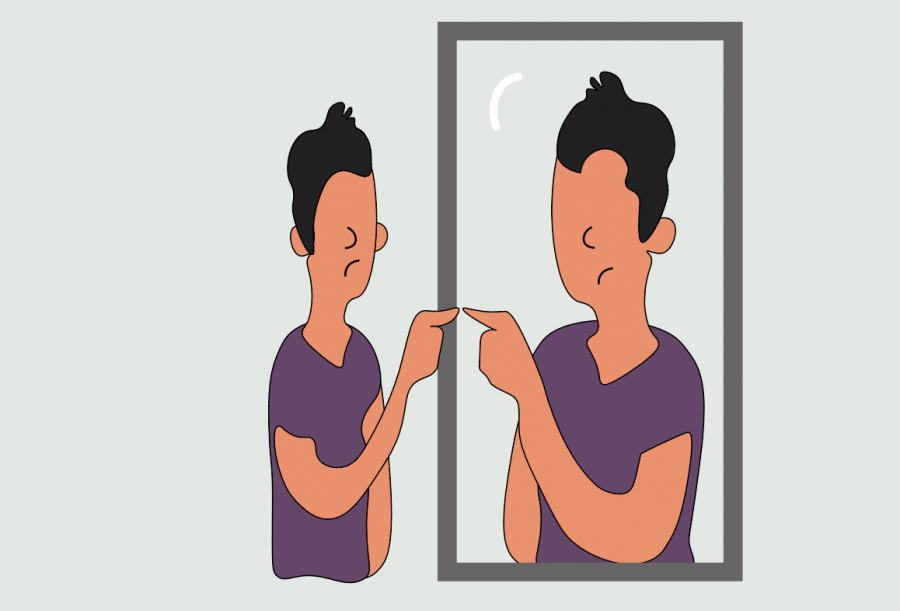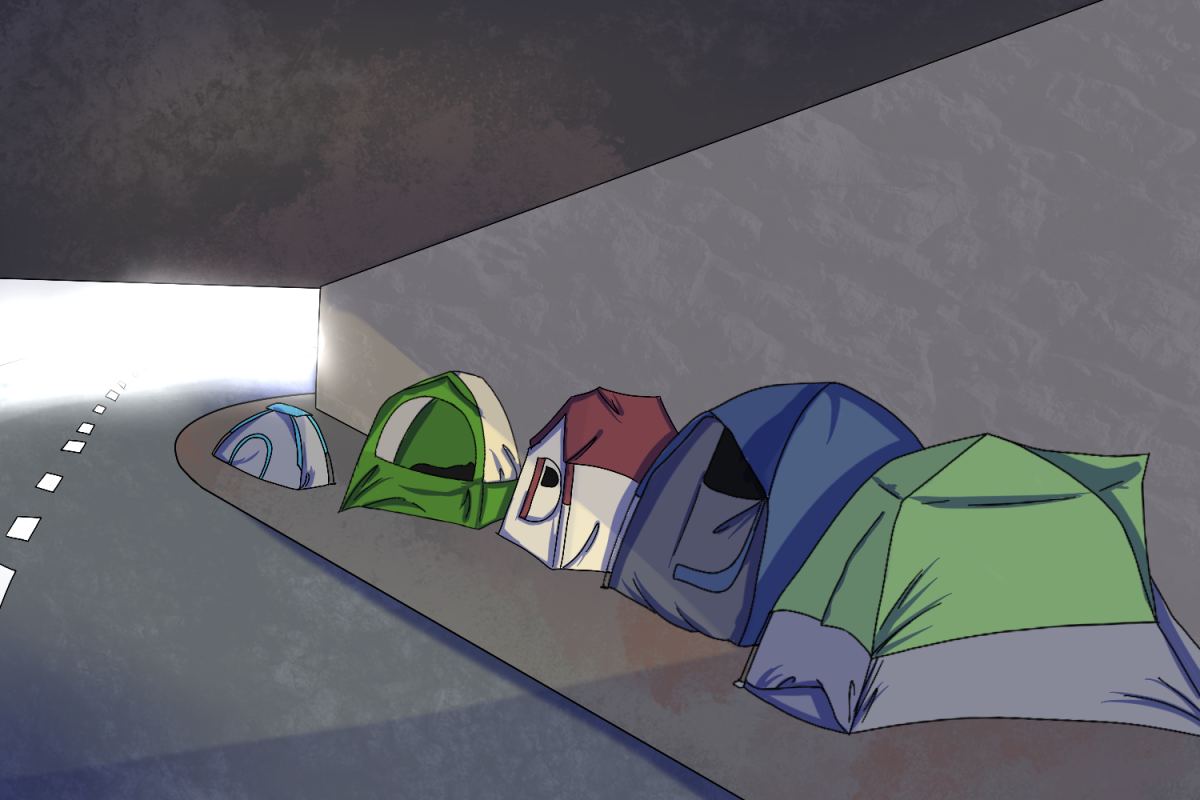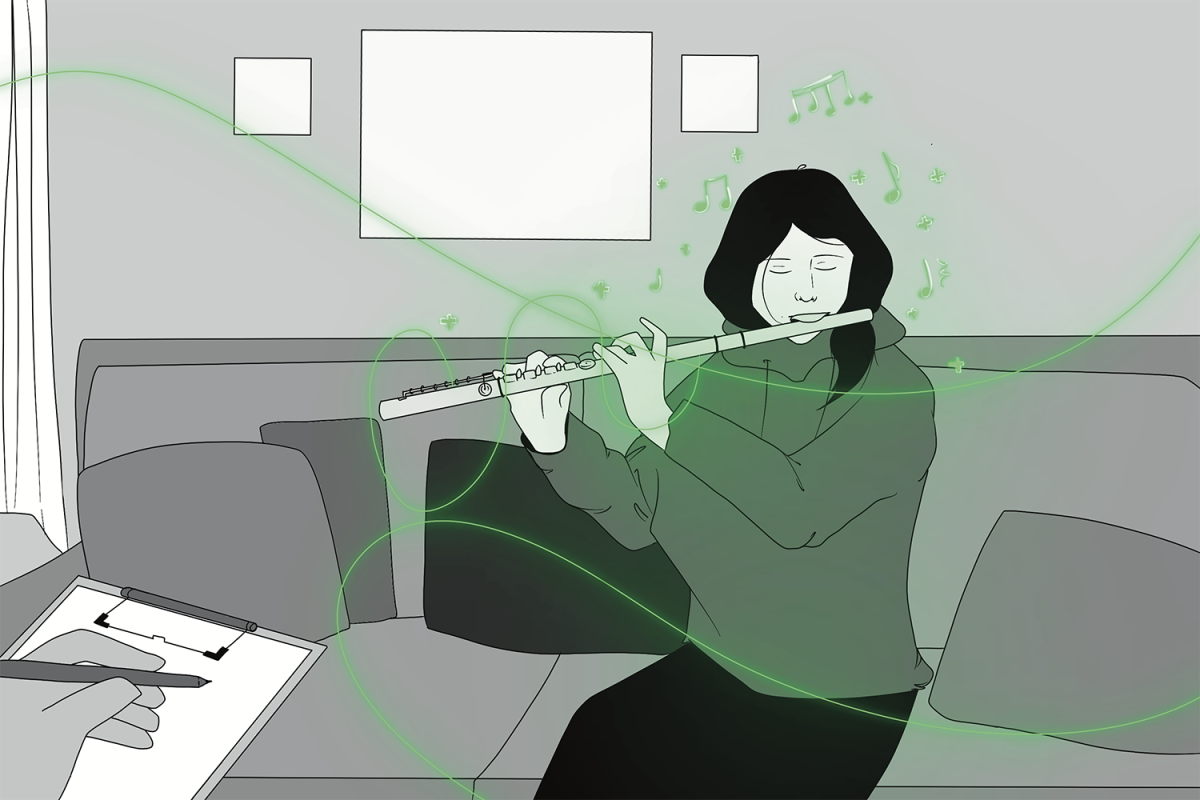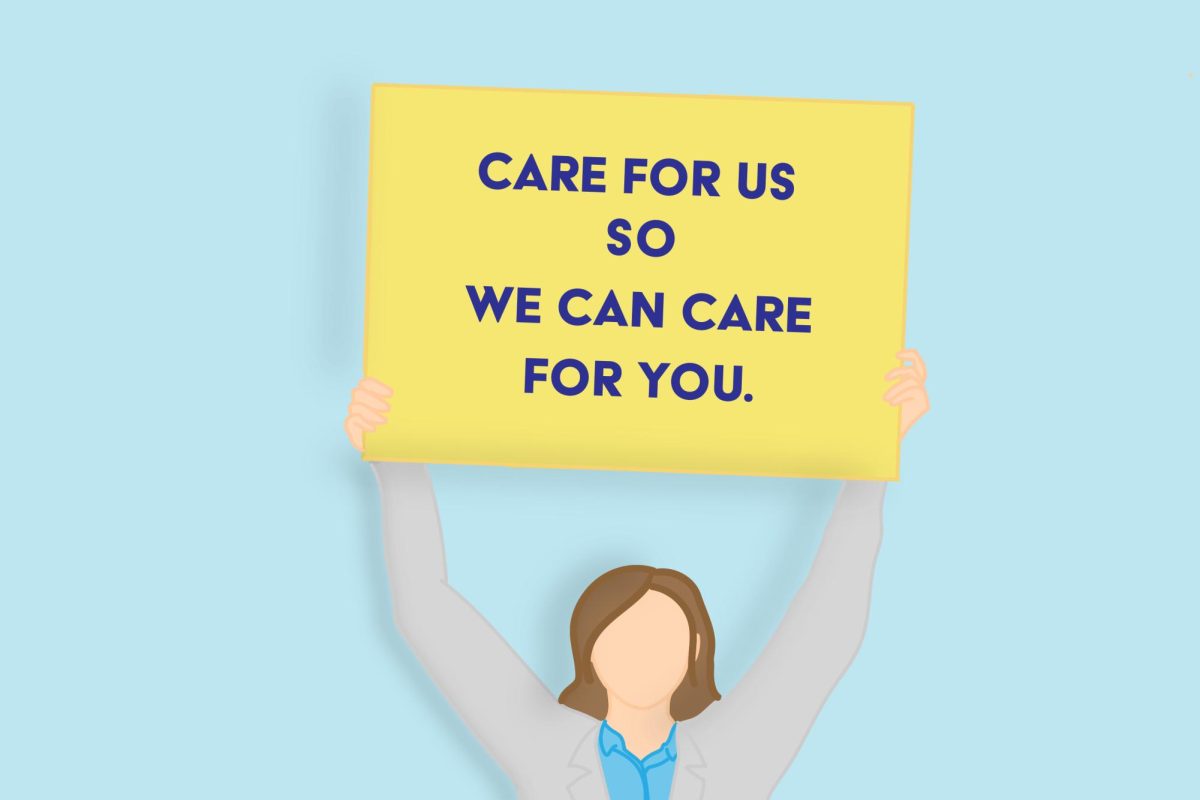“Just eat.”
“You don’t look like you have an eating disorder.”
“You’re not sick enough.”
At least 9% of the global population suffers from an eating disorder and millions of people endure these comments on a daily basis. Whether that be through those they know or strangers online, the impact remains the same.
In the era of COVID-19, reported spikes of eating disorders had left people trapped inside with their illness. But it’s about more than food. Eating disorders range beyond a physical issue, and just like mental disorders, they don’t have one particular “look.”
Ultimately, someone’s weight can never reveal the issue behind eating disorders.
But stigmatizing eating disorders can first be traced back to the media: TV shows, commercials, and apps push the notion that looking a certain way is deemed right, and looking another is deemed wrong. In movies like “To the Bone,” eating disorders are displayed consistently through white, thin, upper-middle-class females.
Those with marginalized bodies are those most targeted by the danger of the media, yet they are the same ones denied treatment at alarming rates.
When eating disorders are only associated with thinness, messages that weight rules the world are detrimental to vulnerable consumers. If people don’t fit the cookie-cutter definition of what it means to have an eating disorder, their struggles are automatically invalidated.
In reality, eating disorders have no race, body type, nor gender. As the deadliest mental illness in the world, portraying the issue as a black-and-white situation is harmful to millions searching for a way out.
This is not to say that being underweight is not one of the most dangerous effects of having an eating disorder. Rather, it is not the sole requirement for people to get help; only 6% of people with eating disorders are clinically “underweight.”
When unhealthy perceptions of food connected to beauty are promoted from adolescence to old age, it can cause sickness at any weight, race, or gender.
In a shocking report, The National Association of Anorexia Nervosa and Associated Disorders found that people of color are half as likely to be diagnosed for their eating disorders than their white counterparts. Disparities in diagnosis often prevent minorities and those who don’t fit the exact criteria from receiving proper treatment.
In fact, this issue runs deep into the healthcare industry — while the guidelines for a proper diagnosis are strict, atypical eating disorders can be just as life-threatening. Anorexia is a deadly disease, but so is bulimia, orthorexia, and binge eating disorder. Each of them works to destroy the mind and body alike, but the world only likes to discuss one of them.
Stigmas regarding eating disorders silence the realities behind the illness — hair loss, mood swings, body dysmorphia, fainting, and all. They also may indicate other psychological issues; people with eating disorders can also suffer from anxiety and depression at the same time. Regardless of the type, isolation from others, obsessive eating habits, or a desire for control are symptoms of eating disorders.
In many cases, people may not experience the same side effects when it comes to eating disorders. That being said, it is essential to remember that each experience is entirely valid.
Someone who struggles with an eating disorder could be your cousin, your best friend, your brother.
Or it could be you.
Despite how widespread they are, eating disorders are a complicated issue to bring awareness to, primarily because of their various types. Binge eating disorder, for instance, affects three times the number of people suffering from bulimia and anorexia combined. Yet, it’s rarely discussed in the media.
In order to mend these damaging stereotypes, educating others about eating disorders is the first step. The education system can implement such lessons more thoroughly — after all, a ten-minute presentation about the dangers of undereating to death is hardly effective.
Freshman-year me, who could have never predicted the pressures on teenagers to attain the “right” body, was not prepared to battle thoughts telling me I was never enough. If schools would make comprehensive lessons on eating disorders early on, it could quite literally save lives.
Having open discussions about weight will encourage students to get the help they need and reach out to those who display symptoms in an open, accepting way. Allies may be one of the most vital forces in battling the stigmas against eating disorders, from making efforts to post information online or beyond.
While the media can be a powerful force to perpetuate damaging stereotypes, it can also serve as a tool to help others. A fitness culture that creates an obsession with calories and numbers can be a stifling boundary on the road to recovery, but understanding the range of people in which it impacts can help countless people along the way.
Taking time to recognize stigmas surrounding eating disorders and addressing them with appropriate language could be the most significant initiative to aid those struggling.
There is no such thing as “not sick enough.”
Linktree of resources available to help: https://linktr.ee/Isabelle.Nunes













